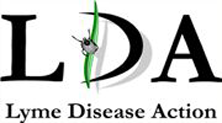Can mosquitoes or other insects transmit Lyme disease?
As far as we know the tick is the only vector. The Borrelia bacteria has a complex relationship with both the tick, in which it spends part of its life, and the mammalian host (mouse, bird, human etc). Although the Lyme disease bacteria have been found in the salivary glands of mosquitoes, there is no […]
more...